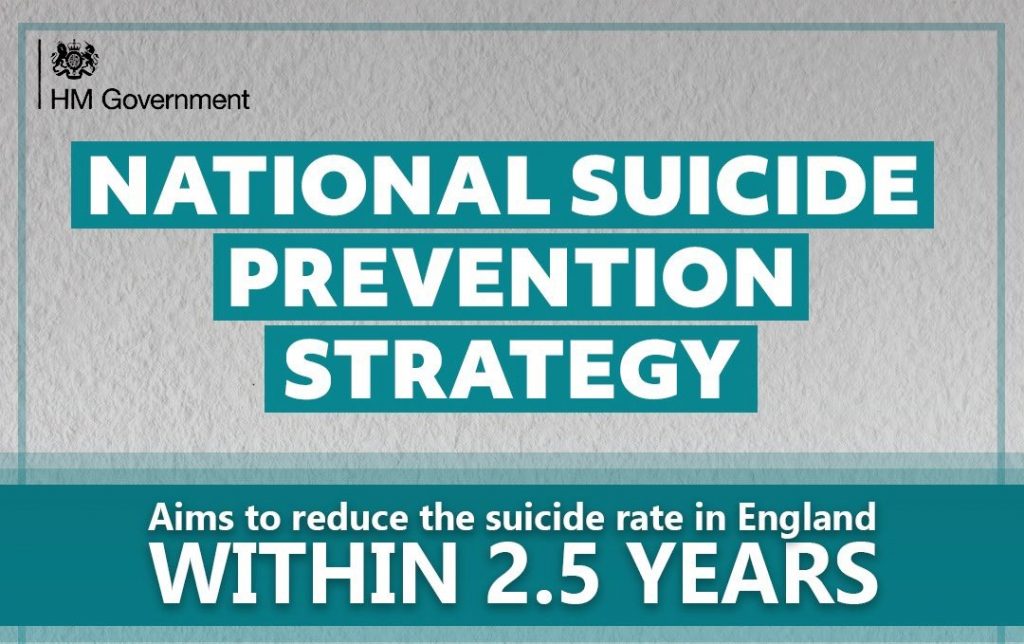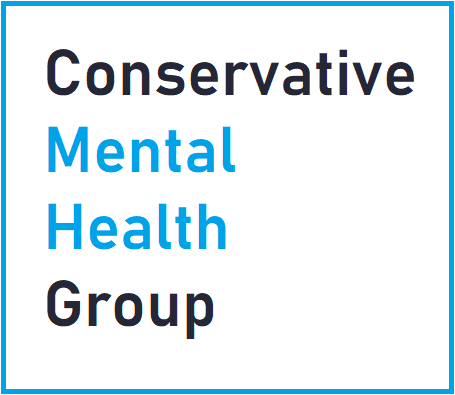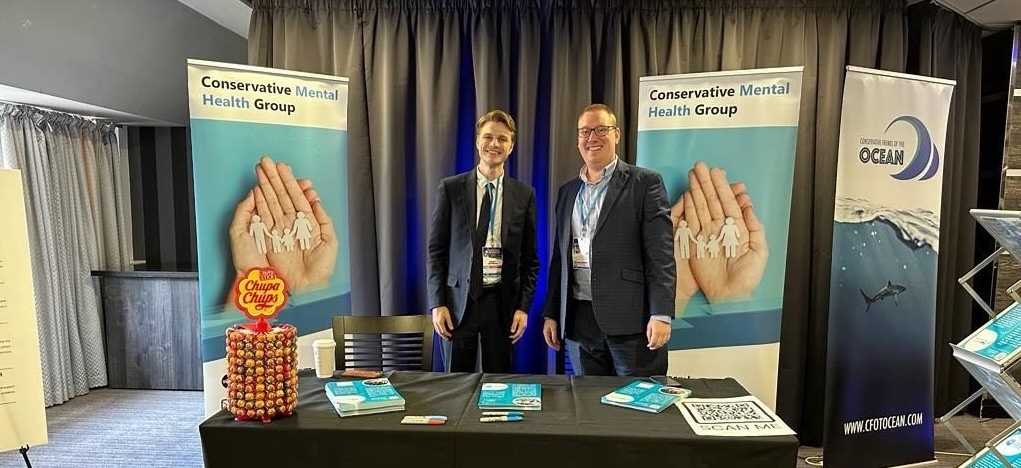New Strategy, New Hope – Suicide Prevention Strategy (2023-2028)
By Danny Bowman FRSA – CMHG Research and Communications Lead

The issue of suicide is one that impacts us all and can have a devastating effect on the lives of so many people across the UK. Indeed, the latest data outlines that there were over 5,000 suicides recorded across our four nations. Each case represents a unique individual with family and friends who for a diverse range of reasons found themselves struggling in life. Their stories are heartbreaking and sadly way too common. The multifaceted and stigmatized nature of suicide meant that it had previously been ignored by policymakers with other issues being prioritized instead. Yet, over the last couple of years, the issue has gradually come to the forefront of the minds of representatives through the amazing work of individual campaigners and organisations. One such individual was the former Secretary of State for Health and Social Care, Sajid Javid, who bravely spoke about the loss of his brother to suicide. His testimony has had an enormous impact on raising the saliency of the issue in the UK Parliament and beyond, setting in motion the formulation of a long-term suicide prevention strategy.
The new long-term suicide prevention strategy endeavours to reduce suicide rates, increase access to care and treatment, and offer essential support to those impacted by the issue including family members and friends. The framework for the strategy is holistic in nature, reflective of the multifaceted nature of suicide, using the might of the whole government to address the problem. Indeed, a range of actors and organisations have contributed to the construction of the new strategy including academics, health professionals, the NHS, the private sector, and national and local government officials. The wealth of knowledge generated from these stakeholders has fed into the construction of a truly ambitious and comprehensive strategy that aims to address suicide over the next five years.
At the Conservative Mental Health Group, we wanted to break the strategy down and provide a clear overview of some of the key prevention, promotion and treatment-based measures being advocated within the five-year plan.
Data and Evidence
Data collection is essential to advancing our understanding of suicide and self-harm trends in the UK and measuring the success of our interventions in combating the issue. The architects of the strategy recognise this and the importance of collecting data on specific communities across the country. The strategy details a roadmap to improving the collection of data on suicide and self-harm at a local and national level including real-time surveillance. The strategy also states the need to increase our awareness of suicide trends among specific individuals and communities such as veterans, refugees, and members of the LGBT community.
Tailored and Targeted Support, Crisis Care and Broader Interventions
The architects of the new strategy are determined to improve access to specialist support for members of the population at risk of suicide. At the forefront of their approach is improving access, funding, and resources in mental health services. We know that if individuals can access appropriate support in a timely manner they can recover and are at a reduced risk of relapse. Indeed, improving access to psychological and social interventions will be paramount if we are to address suicide in a comprehensive manner. This includes additional support for those in crisis with investment in a range of health-based and non-health-based places of safety promised within the strategy. The authors of the strategy also recognise that other issues such as drug and alcohol abuse contribute to suicide. The strategy pledges to increase the amount of investment directed at addiction services. This includes extra support for those experiencing other issues such as gambling addiction. In combination, such measures will improve care for those experiencing mental health disorders and addiction issues, reducing the risk of suicidal ideation.
Beyond health-based provisions, the strategy endeavours to improve access to mental health and suicide prevention activities in schools, colleges, and universities. This will be achieved through the introduction and expansion of a range of initiatives including mental health support teams in schools, suicide prevention activities in the curriculum, and the University Mental Health Charter programme. All three measures will be essential instruments in the prevention of suicide, the promotion of knowledge and collaboration between services, and the enhancement of care and treatment opportunities. Alongside these measures, the strategy includes sections on addressing online harm through the Online Safety Bill and supporting people in financial difficulty. All these issues are associated with the onset of suicidal ideation, making their inclusion a massive step forward in our mission to reduce the prevalence of suicide.
Reducing Risk Factors
The identification and reduction of risk factors associated with suicidal ideation is an essential step in minimising cases across the country. We know that psychological and social issues such as loneliness, drug and alcohol addiction, gambling addiction and domestic abuse can contribute to the occurrence of suicide. That’s why the authors of the report have advocated and extended measures to support people struggling with such issues. For example, the improvement of treatment opportunities for addiction, the expansion of financial support (£37 billion package of cost-of-living support) and other information-based initiatives aim to enhance the amount of assistance available to those in need.
Bereavement Support
The experience of losing someone to suicide is something that is hard to comprehend but because of the bravery of family members and friends coming forward to share their experiences, a section on bereavement support is included in the strategy. Indeed, the authors of the strategy have stated their commitment to investing in bereavement support and enhancing training opportunities across the whole of society.
Suicide Prevention is Everyone’s Business
The issue of suicide is one that impacts the whole of society, not least those with direct experience of it in their family or friends groups. This new strategy offers an incredible opportunity to move beyond the old stigmas and barriers of the past and create new hope for those in crisis and their associates. The strategy endeavours to achieve this through the expansion of training and treatment opportunities, awareness and prevention activities, and better data collection. I am confident that with increased collaboration between services, we can overcome this challenge and support those in need, something that is at the heart of the new cross-governmental strategy on suicide prevention.
About the Author

Danny Bowman FRSA – Research and Communications Lead
Danny Bowman FRSA is a PhD Researcher, Chair of MaleVoicED and the CMHG Research and Communications Lead. He has previously held roles as the Director of Mental Health and Head of Campaigns at the Parliament Street think-tank. He has also engaged with No.10 and governmental departments on mental health.
Danny is passionate about mental health, having experienced his own issues as a teenager. His story went viral in 2014 appearing in Time Magazine, The Telegraph and The Times. He has also told his story on Good Morning Britain, Sky News and ABC 2020. He is determined to increase awareness and improve care for those with mental health disorders.
Contact: danny_bowman@thecmhg.co.uk





